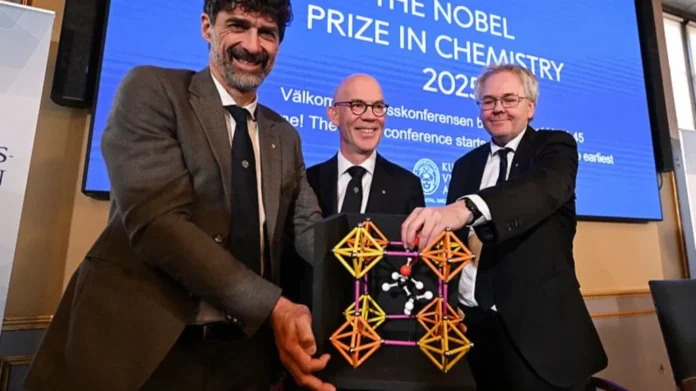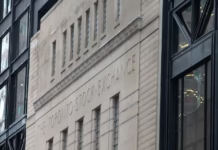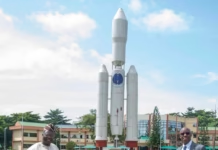Three scientists, Susumu Kitagawa, Richard Robson and Omar M Yaghi, have been awarded the 2025 Nobel Prize in Chemistry for inventing metal organic frameworks, a breakthrough that could help clean the air, reduce plastic waste and even neutralize toxic gases.
Their discovery, described by the Nobel Committee as molecular architecture, allows scientists to build materials full of microscopic rooms capable of trapping gases such as carbon dioxide or filtering out harmful chemicals. The innovation could transform environmental cleanup and carbon capture, two of the most urgent challenges facing the planet.
“These frameworks could be a game changer for tackling pollution and climate change,” said Professor Sheila Rowan of the Royal Society.
The trio’s research began decades ago, long before climate science dominated global discussions. Today, metal organic frameworks are being tested to capture carbon dioxide from factories, break down toxic gases and filter forever chemicals, also known as PFAS, from water.
Professor Kitagawa, speaking from Kyoto University, said he was deeply honoured and delighted by the recognition, before modestly asking how long he had to stay on the call because he had to go to a meeting.
The laureates, who will share 11 million Swedish kronor, about 872 thousand pounds, represent a global collaboration spanning Japan, Australia and the United States. The Nobel Committee praised their work as foundational to one of chemistry’s fastest growing fields.
Dr Annette Doherty, President of the Royal Society of Chemistry, said the award is a reminder that chemistry remains at the heart of solving humanity’s biggest problems, from clean energy to a livable planet.



















